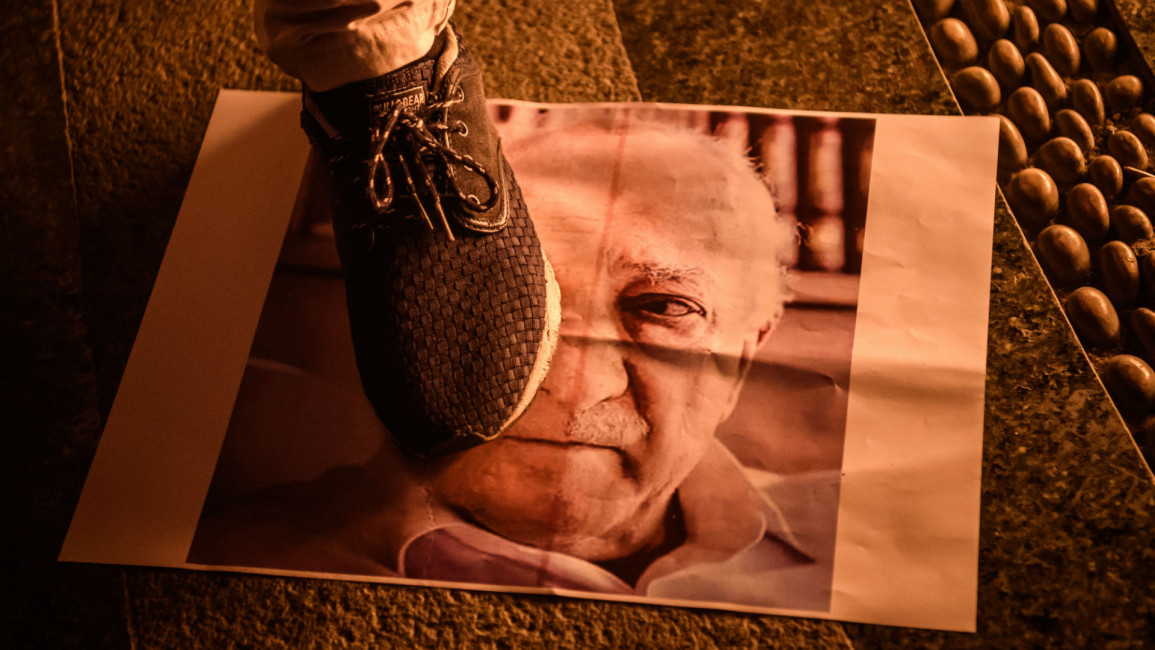Two life sentences plus 1,900 years for Turkey's Gulen
A 2,527-page indictment approved by prosecutors charged Gulen with "attempting to destroy the constitutional order by force" and "forming and running an armed terrorist group" among other accusations, the Anadolu news agency reported.
But in a step back from threats to reintroduce the death penalty in the wake of the July 15 failed putsch, Prime Minister Binali Yildirim said a fair trial would represent a harsher punishment for coup plotters than execution.
On Tuesday, the prime minister called for a fair trial instead of the death penalty for all suspected coup plotters – a softer approach to Erdogan’s suggestion for the reinstatement of capital punishment.
"A person dies only once when executed," Yildirim said in parliament.
"There are tougher ways to die than the death (penalty) for them. That is an impartial and fair trial."
Gulen, who lives in a secluded compound in Pennsylvania, has vehemently denied that he and his supporters were behind the coup attempt.
Ankara is sweeping ahead with a crackdown that has seen some 100,000 people either detained or lose their jobs, worrying Western allies, with simultaneous raids against companies in Istanbul suspected of helping to finance the Gulen movement.
The so-called Fethullah Terror Organisation (FETO) – the name Ankara gives the group led by the Islamic preacher – had infiltrated state archives through its members in the state institutions and intelligence units, according to the indictment.
The group has used foundations, private schools, companies, student dormitories, media outlets and insurance companies to serve its purpose of taking control of all state institutions, it added.
It has also collected funds from businessmen in the guise of "donations" and transferred the money to the US through front companies, and by using banks in the United Arab Emirates, South Africa, Tunisia, Morocco, Jordan and Germany, Anadolu reported.
The symbolic punishment of two life sentences and an additional 1,900 years in prison for Gulen is one of the heaviest ever demanded in Turkey since the death penalty was abolished in 2004 as part of the country's bid to join the European Union.
The prospect of the death penalty being restored had stunned the EU, which makes the abolition of capital punishment an unnegotiable condition for joining the bloc.
On Tuesday, Erdogan said it was only natural to discuss whether to introduce the death penalty after the botched coup, and blasted Europe for its criticism.
"If the people have such a demand, (parliament) will discuss it," he said.
Turning to Europe, Erdogan said if what Turkey faced had taken place in the West, "they would both introduce capital punishment and declare a non-stop state of emergency".
"Believe me, they do not have the patience, strength and faith that we have," he said.
Gulen, a reclusive cleric in who has lived in the US since 1999, has been repeatedly accused of running a "parallel state" since a corruption scandal embroiling then premier Erdogan and several of his ministers erupted in 2013.
Ankara wants Washington to extradite Gulen to face trial back home, indicating that any failure to deliver him will severely damage ties.
Foreign Minister Mevlut Cavusoglu discussed the extradition process in a telephone call with US counterpart John Kerry this week, the foreign ministry said.
This comes as US Vice President Joe Biden is due to visit Turkey to discuss the issue later this month.



